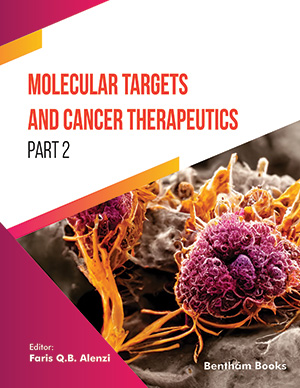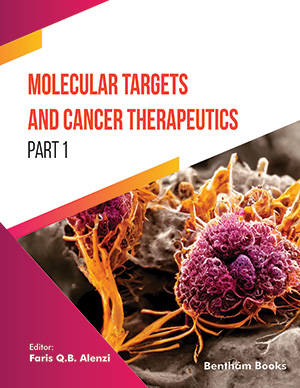Abstract
Background: Larynx cancer (LCa) is the most common head and neck cancer and accounts for 1-2.5% of all human cancers worldwide. Metformin, an oral anti-diabetic drug, has been recently shown to have anti-cancer activity in various cancer types, and there are several studies in the literature pointing to its potential to sensitize cancer cells to chemotherapeutic drugs.
Objective: This study was aimed at exploring the anti-cancer effects of metformin alone or in combination with 5-fluorouracil (5-FU) on Hep-2 cells.
Methods: The effects of metformin and/or 5-FU on the proliferative, clonogenic, and apoptotic potential of Hep-2 cells were evaluated with Cell Viability Detection Kit-8, soft agar assay and Annexin VFITC Apoptosis assay, respectively. Migratory and invasive potential of cells was tested using scratch, transwell migration and Matrigel invasion assays. Gene expression of cells exposed to metformin and/or 5-FU was profiled using RT2 mRNA PCR Array plates.
Results: Treatment of Hep-2 cells with metformin inhibited cell proliferation by inducing apoptosis, and suppressed cell migration. Besides, treatment of metformin along with 5-FU improved the antiproliferative and anti-migratory effects of 5-FU. However, unexpectedly, metformin was found to enhance cellular invasion and reverse the inhibitory effect of 5-FU on the invasive potential of Hep-2 cells.
Conclusion: Our findings suggest that metformin might be used as an adjuvant agent in the treatment of LCa. However, the potential of metformin to promote the invasion of cancer cells should not be neglected.
Keywords: Metformin, larynx cancer, Hep-2 cells, 5-Fluorouracil, chemotherapy, adjuvant.
[http://dx.doi.org/10.1186/s12885-016-2863-3] [PMID: 27816053]
[PMID: 27874955]
[http://dx.doi.org/10.1155/2014/374598] [PMID: 25184138]
[http://dx.doi.org/10.1002/lary.25332] [PMID: 25945817]
[http://dx.doi.org/10.3892/etm.2017.4685] [PMID: 28810638]
[http://dx.doi.org/10.1177/1010428317697553] [PMID: 28381160]
[http://dx.doi.org/10.1002/jgm.2998] [PMID: 29106062]
[http://dx.doi.org/10.3390/molecules22111629] [PMID: 29117097]
[http://dx.doi.org/10.1016/j.fct.2017.10.056] [PMID: 29104175]
[http://dx.doi.org/10.4155/fmc-2017-0139] [PMID: 29110537]
[http://dx.doi.org/10.1186/1741-7015-9-33] [PMID: 21470407]
[http://dx.doi.org/10.1016/j.oraloncology.2015.01.007] [PMID: 25636350]
[http://dx.doi.org/10.1002/hed.24793] [PMID: 28449193]
[http://dx.doi.org/10.3892/or.2014.3151] [PMID: 24788596]
[http://dx.doi.org/10.3748/wjg.14.7192] [PMID: 19084933]
[http://dx.doi.org/10.1016/j.ygyno.2012.07.115] [PMID: 22864111]
[http://dx.doi.org/10.1002/hed.23409] [PMID: 23784886]
[PMID: 29871302]
[http://dx.doi.org/10.1111/dom.12351] [PMID: 25041125]
[http://dx.doi.org/10.1177/1010428317699417] [PMID: 28631575]
[http://dx.doi.org/10.18632/oncotarget.8724] [PMID: 27081701]
[http://dx.doi.org/10.1093/oxfordjournals.epirev.a036223] [PMID: 7000536]
[http://dx.doi.org/10.3322/caac.21166] [PMID: 23335087]
[http://dx.doi.org/10.1517/14656561003749256] [PMID: 20429666]
[http://dx.doi.org/10.1200/JCO.2003.01.008] [PMID: 12506176]
[http://dx.doi.org/10.1016/j.anl.2016.06.005] [PMID: 27397024]
[http://dx.doi.org/10.1016/j.ctrv.2017.01.005] [PMID: 28161619]
[http://dx.doi.org/10.1038/nrc1074] [PMID: 12724731]
[http://dx.doi.org/10.1002/jcb.26291] [PMID: 28722177]
[http://dx.doi.org/10.3109/03602532.2011.638303] [PMID: 22497631]
[http://dx.doi.org/10.1016/j.ccr.2012.02.014] [PMID: 22439925]
[http://dx.doi.org/10.3892/or.2013.2862] [PMID: 24253938]
[http://dx.doi.org/10.1371/journal.pone.0063969] [PMID: 23667692]
[http://dx.doi.org/10.1136/bmj.38415.708634.F7] [PMID: 15849206]
[http://dx.doi.org/10.2337/dc09-1380] [PMID: 19918015]
[http://dx.doi.org/10.1038/ajg.2013.5] [PMID: 23381014]
[http://dx.doi.org/10.1158/1940-6207.CAPR-10-0157] [PMID: 20947488]
[http://dx.doi.org/10.1111/bju.12448] [PMID: 24053906]
[http://dx.doi.org/10.1016/j.urolonc.2013.07.006] [PMID: 24140245]
[http://dx.doi.org/10.1186/s40463-018-0322-7] [PMID: 30514404]
[http://dx.doi.org/10.1371/journal.pone.0174276] [PMID: 28406985]
[http://dx.doi.org/10.1158/0008-5472.CAN-18-3525] [PMID: 31292160]
[http://dx.doi.org/10.1186/s12885-019-5945-1] [PMID: 31337349]
[http://dx.doi.org/10.4143/crt.2017.466] [PMID: 29334602]
[http://dx.doi.org/10.1007/s10549-016-4029-z] [PMID: 27783278]
[http://dx.doi.org/10.18632/aging.100407] [PMID: 22170748]
[http://dx.doi.org/10.1016/j.ygyno.2008.04.008] [PMID: 18495226]
[http://dx.doi.org/10.1016/j.ejca.2010.06.012] [PMID: 20656475]
[http://dx.doi.org/10.1593/neo.11148] [PMID: 21532889]
[http://dx.doi.org/10.1038/oncsis.2017.28] [PMID: 28459432]
[http://dx.doi.org/10.18632/oncotarget.15348] [PMID: 28209916]
[http://dx.doi.org/10.1038/cddis.2014.329] [PMID: 25118939]
[http://dx.doi.org/10.3892/or.2015.3717] [PMID: 25592110]
[http://dx.doi.org/10.1200/JCO.2009.19.6410] [PMID: 19487376]
[http://dx.doi.org/10.1007/s10549-012-2223-1] [PMID: 22933030]
[http://dx.doi.org/10.1002/cam4.353] [PMID: 25417601]
























